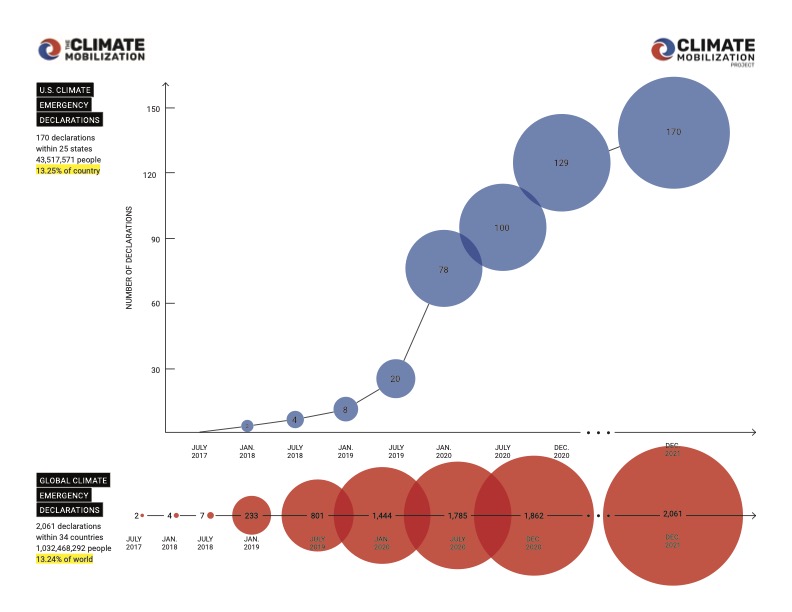Climate Emergency Movement
Climate Emergency Declarations in the U.S. now number 170, within 25 states. Worldwide 13.24% of the global population lives in a jurisdiction that has declared a climate emergency. These numbers continue to grow, despite the pandemic, as organizers push their local governments to take urgent action in the absence of state and national efforts.
The New York City Council voted to ban natural gas hookups in new construction in the city. Congratulations to The #GasFreeNYC coalition, which has worked for months to create this win for air quality, public health and climate.
Last week the pipeline developers in Oregon formally ended the Jordan Cove Liquified Natural Gas pipeline project, a huge win for the local and Indigenous opposition groups. The pipeline would have carried natural gas for export and would have created the largest source of greenhouse gas emissions in Oregon.
Team Spotlight
Meet Suha Dabbouseh, our National Organizer who focuses on building power for Climate Mobilization in Virginia. They are originally from Chicago but have lived, organized and rebel-roused in seven states and 11 cities. Suha received their law degree from CUNY-School of Law where they focused on social justice lawyering representing detainees at Guantanamo Bay. While practicing law, Suha had worked to advocate on behalf of domestic violence survivors, transgender clients, and people facing employment discrimination. Their passion is building people power and organizing to dismantle structural inequities.
Climate Impacts
Alarming news is coming from scientists who study Antarctic sea ice. A large portion of the Thwaits glacier appears close to collapse, much sooner than expected. This disintegration of the ice shelf would lead to further, more rapid melting, locking in inevitable sea level rise. “Total collapse of Thwaites could result in several feet of sea level rise, scientists say, endangering millions of people in coastal areas,” according to the Washington Post, though the timeframe for this level of rise is still unknown.
Record-breaking high temperatures across the Midwestern U.S. created conditions for the deadly tornadoes that ripped through Kentucky and elsewhere this past weekend. Our thoughts are with the victims and their families, and so many people sorting through what’s left of their homes. The climate emergency is making all of us unsafe. We need campaigns in every town and city across the country to demand a just transition to a carbon-free economy. You can get started making change in your community by downloading our organizer toolkit.
If you’re curious about even more reasons to support cutting fossil fuel emissions, a new study in the Proceedings of the National Academy of Sciences finds that the health damages of air pollution are so costly to the economy that the reductions in harm that come from cutting emissions will balance the price tag of transitioning to renewable energy, even before the benefits of climate change mitigation are calculated. A new study in Environmental Health Perspectives highlights the racial disparities in exposure to harmful air pollutants, finding that Black and brown communities in every U.S. state are exposed to higher levels of pollution from transportation and industrial sources.
Good Reads
The climate emergency concerns us all, but studies show that people assume young people, white people, and women care the most about the crisis. The truth is a little more complicated.
One of the easiest ways to cut our greenhouse gas emissions is to eliminate methane leaks from existing oil and gas companies, but that’s hard to do when so many are not accurately reporting how much methane they dump into the atmosphere. The House Science Committee is now demanding that industry leaders track and divulge methane emissions. What a concept…

















